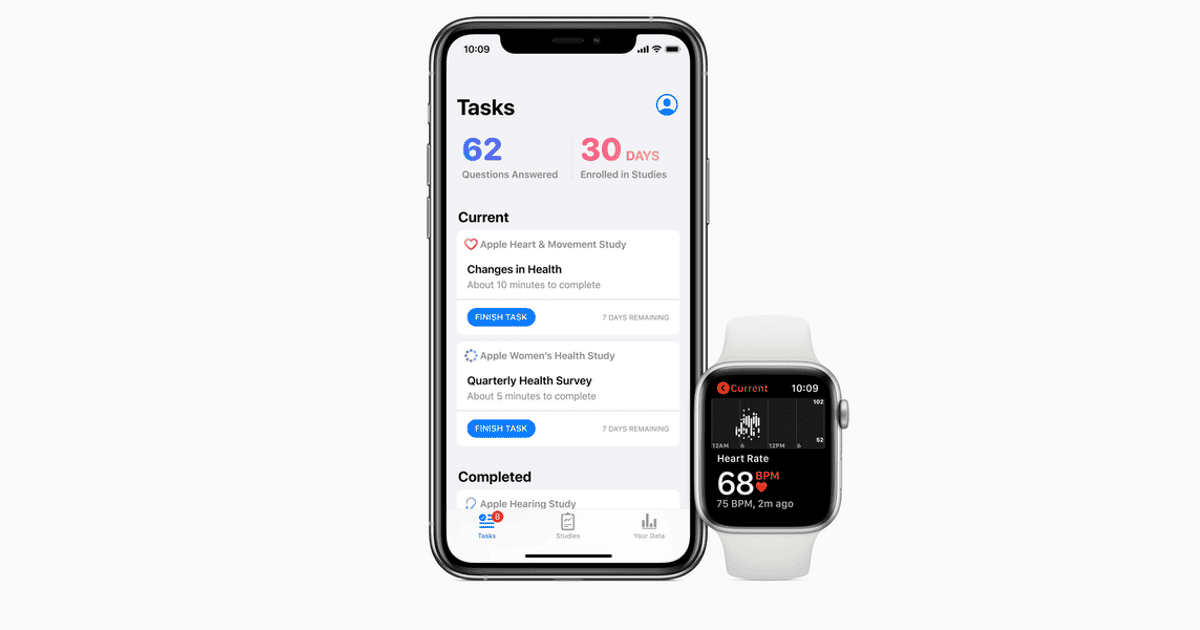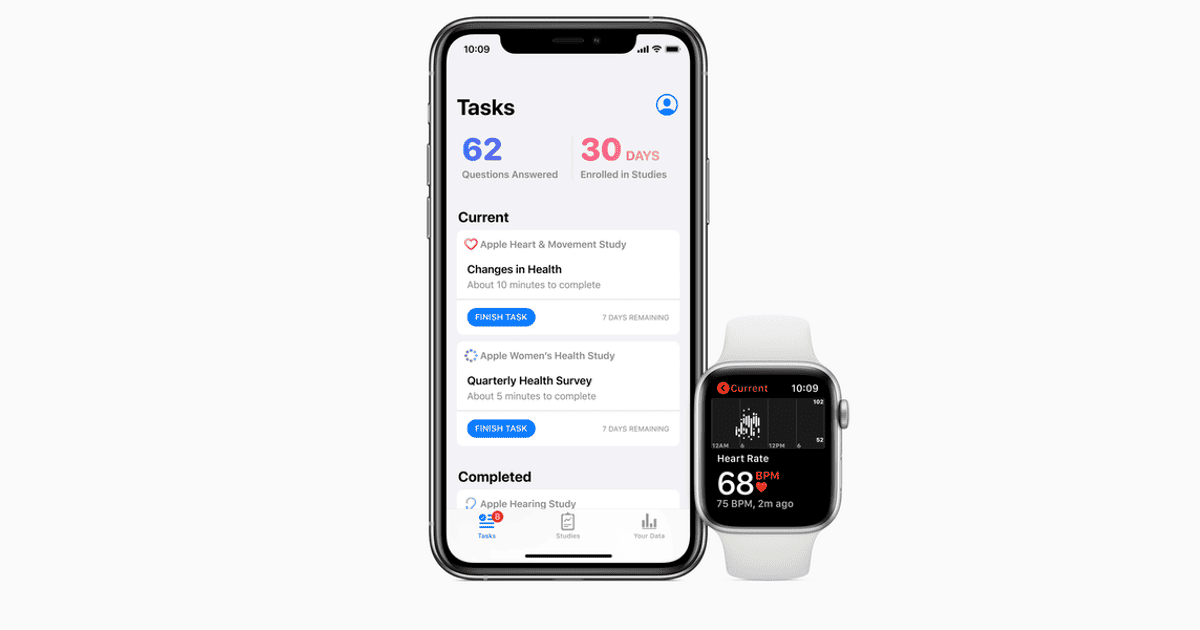Apple launched its Research via the App store on Thursday. Furthermore, it opened enrollment for three new health studies to customers in the U.S. via the app.

Research App Launched
The three studies opened for enrollment today are, the Apple Women’s Health Study, the Apple Heart and Movement Study, and The Apple Hearing Study. The company also emphasized privacy and protecting participant data. Launching the app, Jeff Williams, Apple’s chief operating officer, said:
Today marks an important moment as we embark on research initiatives that may offer incredible learnings in areas long sought after by the medical community. Participants on the Research app have the opportunity to make a tremendous impact that could lead to new discoveries and help millions lead healthier lives.
Three New Studies
The Women’s Health Study intends to improve the understanding of menstrual cycles and their relationship with a number of health issues. These include polycystic ovary syndrome (PCOS), infertility, osteoporosis and, menopausal transition. The Harvard T.H. Chan School of Public Health and the NIH’s National Institute of Environmental Health Sciences (NIEHS) are partners on the study. Participants will answer monthly surveys. Furthermore, their iPhones and Apple Watches will collect data such as cycle tracking information.
The Heart and Movement Study will look at a range of factors that affect heart health and could cause reduced mobility. Participants will record workouts using the research app. Brigham and Women’s Hospital and the American Heart Association are partnering with Apple on the study. The aim is to better understand early warning signals for conditions such as atrial fibrillation, heart disease, and declining mobility.
Apple is conducting The Hearing Study alongside the University of Michigan. It aims to determine the impact of long-term sound exposure on stress levels and cardiovascular health. Participant data will be collected via headphones, the iPhone, and the Apple Watch Noise App. Apple intends to share the data with the World Health Organization’s Make Listening Safe Initiative.
